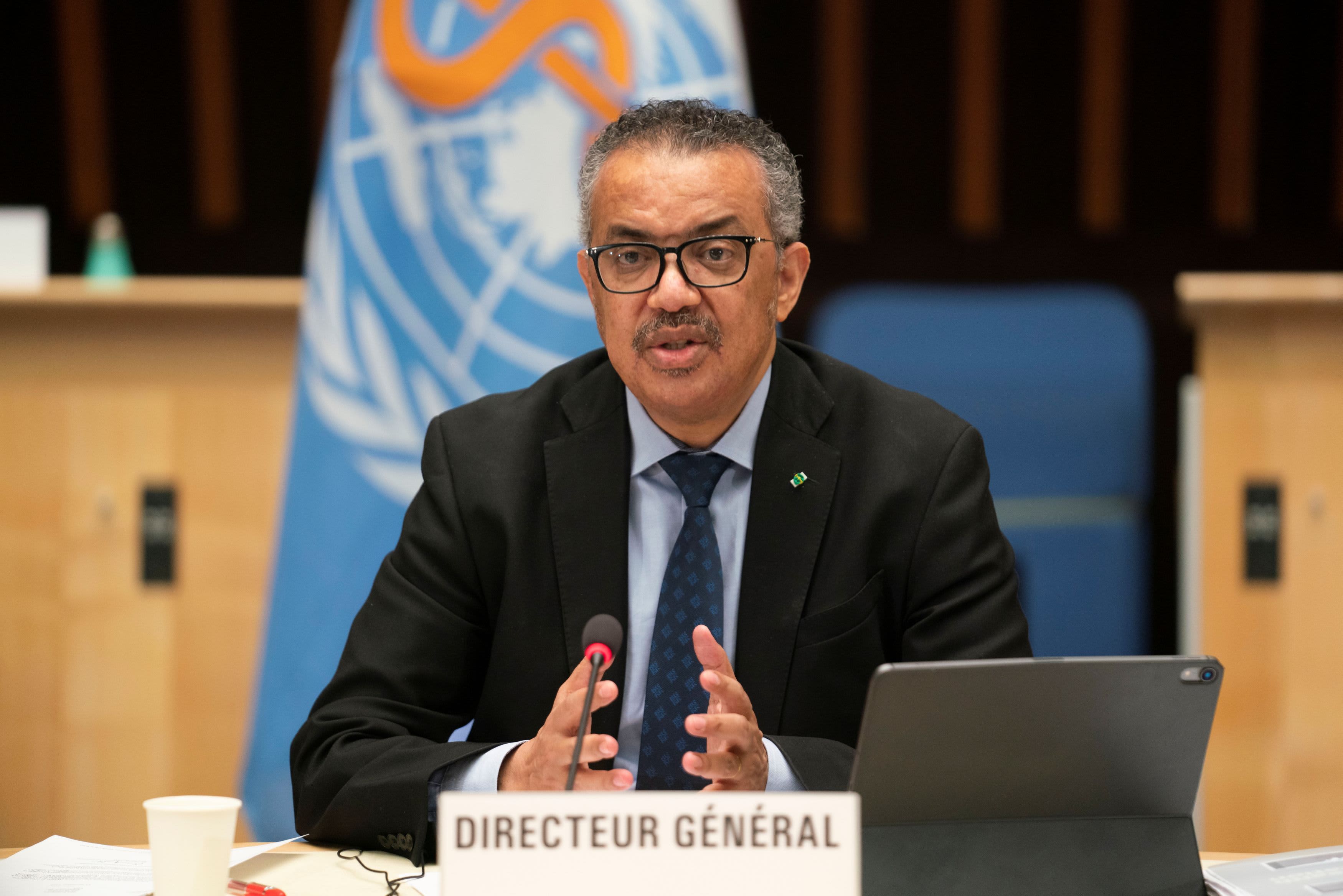Tedros Adhanom Ghebreyesus, Director General of the World Health Organization (WHO) speaks after Dr. Anthony Fauci, director of the National Institute of Allergy and Infectious Diseases during the 148th session of the Executive Board on the coronavirus disease (COVID-19) outbreak in Geneva, Switzerland, January 21, 2021.
Christopher Black | WHO | via Reuters
The Covid-19 pandemic has caused mass trauma on a larger scale than World War II, and the impact will last “for many years to come,” the World Health Organization’s top official said Friday.
“After the Second World War, the world has experienced mass trauma, because Second World War affected many, many lives. And now, even with this Covid pandemic, with bigger magnitude, more lives have been affected,” WHO Director-General Tedros Adhanom Ghebreyesus said at a news conference Friday. “Almost the whole world is affected, each and every individual on the surface of the world actually has been affected.”
“And that means mass trauma, which is beyond proportion, even bigger than what the world experienced after the Second World War,” he added, noting the effect on mental health. “And when there is mass trauma, it affects communities for many years to come.”
His comments came in response to a question about whether countries should take the pandemic’s impact on the economy and mental health into account more as they chart their paths forward. Tedros’ deputies emphasized that mental health ought to be prioritized.
“The answer is absolutely yes,” Maria Van Kerkhove, head of the WHO’s emerging diseases and zoonosis unit, said. “There are variations in terms of the impact that this has had on individuals, whether you have lost a loved one, or a family member or friend to this virus. Whether you’ve lost your job, children who haven’t been in school, people who are forced to stay home in very difficult situations.”
Kerkhove added that the world is still in the “acute phase” of the pandemic, when the virus is tearing through communities, killing tens of thousands every week. She added, though, that the mental health toll of the pandemic will emerge as a major issue in the long term, saying that “there needs to be a lot more emphasis by governments, by communities, by families, by individuals to look after our well-being.”
Dr. Mike Ryan, executive director of the WHO’s health emergencies program, urged people to not just highlight the mental health toll of the pandemic as a problem, but to also discuss solutions.
“It’s one thing to say that mental health is and psychological health is under pressure — that’s true — but also the opposite of that has to be what we’re doing to support and provide psychosocial support to people and communities,” he said.
